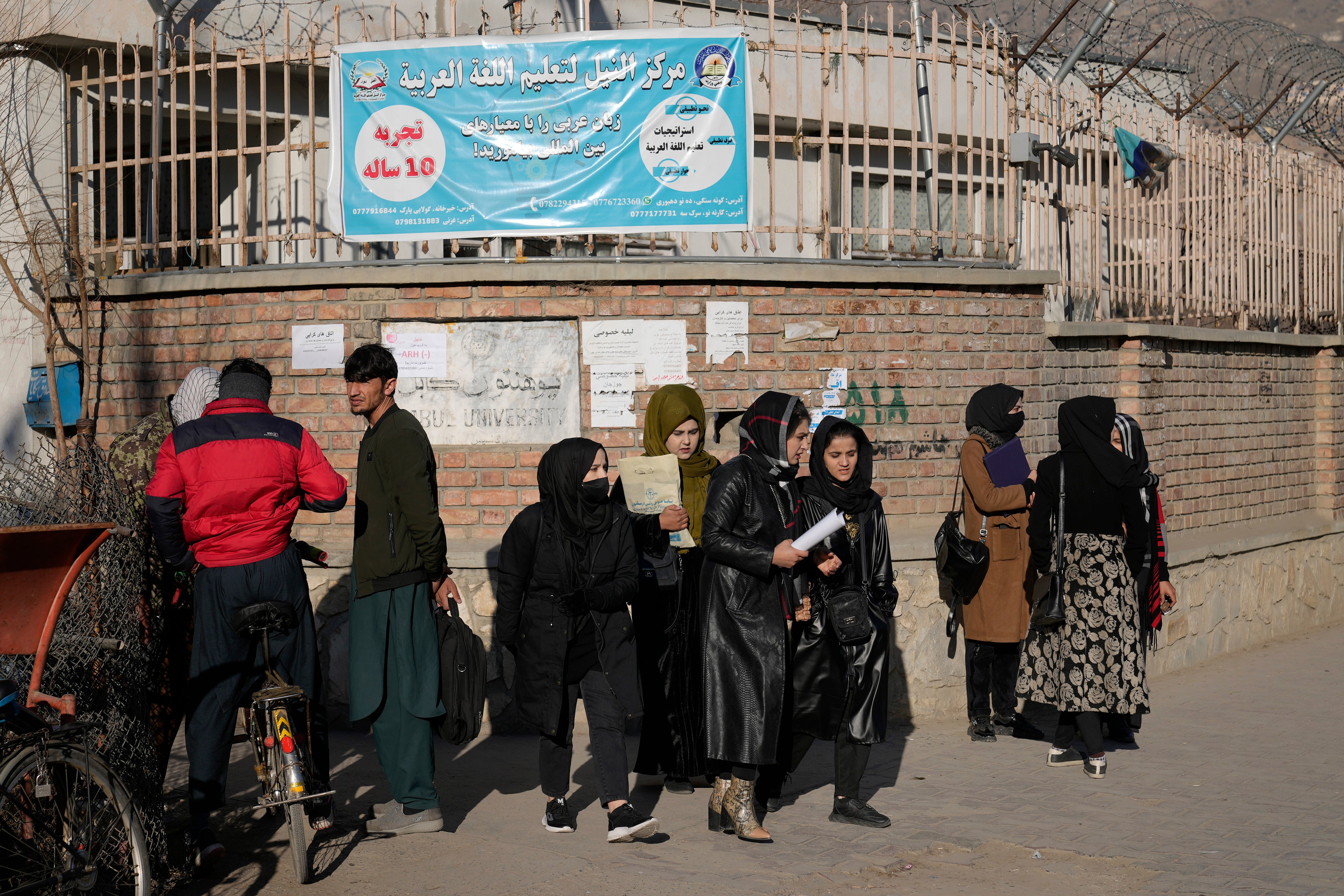Private Afghan universities risk closure after ban on women
A spokesman for Afghanistan's private universities says a quarter of those institutions risks closure because of the ban on female students imposed by the Taliban government

Your support helps us to tell the story
From reproductive rights to climate change to Big Tech, The Independent is on the ground when the story is developing. Whether it's investigating the financials of Elon Musk's pro-Trump PAC or producing our latest documentary, 'The A Word', which shines a light on the American women fighting for reproductive rights, we know how important it is to parse out the facts from the messaging.
At such a critical moment in US history, we need reporters on the ground. Your donation allows us to keep sending journalists to speak to both sides of the story.
The Independent is trusted by Americans across the entire political spectrum. And unlike many other quality news outlets, we choose not to lock Americans out of our reporting and analysis with paywalls. We believe quality journalism should be available to everyone, paid for by those who can afford it.
Your support makes all the difference.A quarter of Afghanistan's private universities risks closure because of the ban on female students imposed by the Taliban government, a spokesman for the sector said Thursday.
Afghanistan’s rulers last week barred women from attending universities effective immediately, dealing another blow to women and girl’s rights and freedoms since they seized power in the country in August 2021. The move also triggered international condemnation and and an outcry at home.
A minister for higher education in the Taliban government, Nida Mohammad Nadim, has defended the ban, saying it is necessary to prevent the mixing of genders in universities and because, according to him, some subjects violate Islamic and Afghan values.
Despite initially promising a more moderate rule respecting rights for women and minorities, the Taliban have widely implemented their interpretation of Islamic law, or Sharia, since their takeover of the country.
They have banned girls from middle school and high school, barred women from most fields of employment and ordered them to wear head-to-toe clothing in public. Women are also banned from parks and gyms. The Afghan society, while largely traditional, had increasingly embraced the education of girls and women over the past two decades under a U.S.-backed government.
A spokesman for the private universities' union, Mohammad Karim Nasiri, said 35 institutions risk closure because of the ban. Male students have also been boycotting classes and exams in solidarity with their female counterparts, he added.
Afghanistan has 140 private universities across 24 provinces with around a total of 200,000 students. Out of those, some 60,000-70,000 are women. The universities employ about 25,000 people.
“Closing the universities (to women) is both a spiritual and material blow," Nasiri said. “We boldly told authorities that, with this decision, the nation is going backward and everyone is worried."
“It is not a good situation, everyone is worried about this decision — whether they are teachers, students, or administrative staff,” he added.
Because of all the financial losses, private university owners told a senior Taliban official, Maulvi Abdul Kabir, and the union that they will have no choice but to close the schools and move their investments abroad if the decision is not reversed, Nasiri said.
He did not indicate a timeframe for the closures. Most universities are currently on a winter break.
The Higher Education Ministry was not immediately available for comment.
The university ban was followed days later by a government order telling Afghan women to stop working at international and domestic nongovernmental groups, allegedly because women weren’t wearing the Islamic headscarf, or hijab, correctly. It was another ban that sparked fierce backlash.
On Wednesday, the United Nations said some of its “time-critical” programs have stopped temporarily in Afghanistan due to lack of female staff. The U.N. stressed that its female staff are key to the humanitarian response in the country, accessing a population men cannot and safeguarding the communities being served.
“Banning women from humanitarian work has immediate life-threatening consequences for all Afghans," the U.N. warned in its statement.
"This comes at a time when more than 28 million people in Afghanistan, including millions of women and children, require assistance to survive as the country grapples with the risk of famine conditions, economic decline, entrenched poverty and a brutal winter,” the U.N. added.